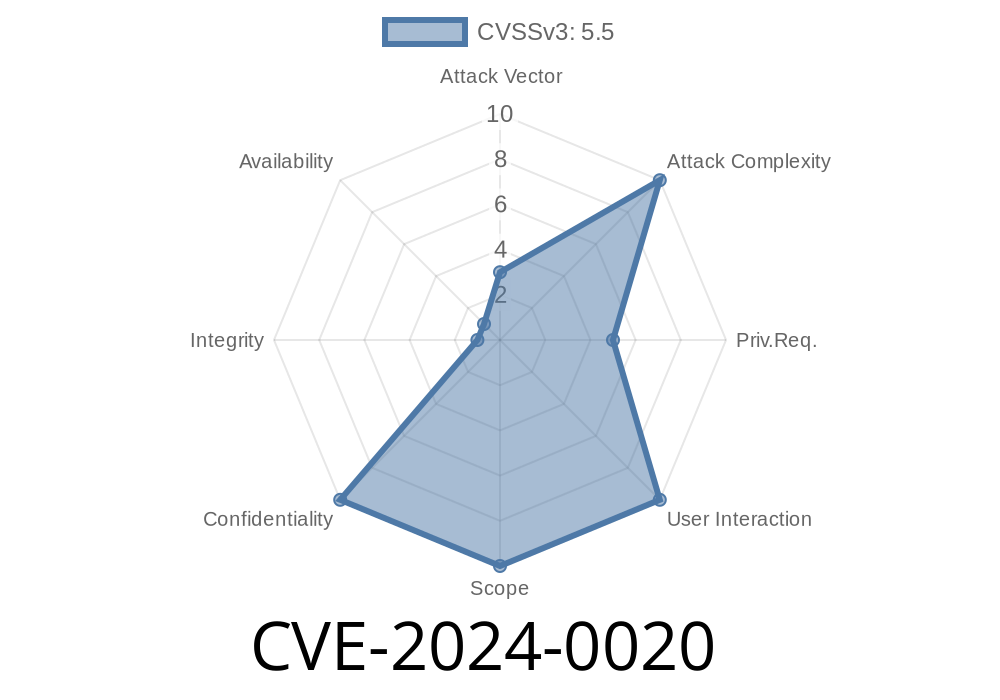In this long-read post, we will discuss the entire concept of the recent CVE-2024-0020 vulnerability discovered in Android's NotificationSoundPreference.java file. We will delve into explaining the issue, as well as providing a code snippet and original reference links to help our readers understand the vulnerability and its implications.
Description
CVE-2024-0020 is a newly reported vulnerability that affects Android, specifically an issue found in the onActivityResult method of the NotificationSoundPreference.java file. The vulnerability can lead to local information disclosure across multiple user accounts on a single device without any additional execution privileges needed. Additionally, this exploitation does not require any user interaction, making the vulnerability a quite significant one.
In essence, this "confused deputy" issue may allow unauthorized users to eavesdrop on audio files belonging to another user, leading to a potential breach of privacy. As most use cases of devices containing such capabilities are meant to be secure, this vulnerability can notably impact sensitive multi-user environments.
The affected Android code snippet is
@Override
protected void onActivityResult(int requestCode, int resultCode, Intent data) {
if (resultCode == RESULT_OK) {
if (data != null) {
Uri uri = getNotification(contentResolver, data.getStringExtra(LinkActivity.EXTRA_URI));
if (uri != null) {
setNotification(uri, data.getLongExtra(LinkActivity.EXTRA_ID, -1L));
}
}
}
super.onActivityResult(requestCode, resultCode, data);
}
Exploitation Details
The vulnerability resides in the onActivityResult method in the NotificationSoundPreference.java file. The logic flaw is that there is no proper check performed to ensure that a specific user can access the audio file before playing it. As a result, any user on the device can potentially listen to another user's audio files through this confused deputy issue.
Mitigation suggestions
While there is no official patch or fix released for CVE-2024-0020, there are a few mitigation strategies that developers can implement to protect their multi-user Android applications from this vulnerability:
1. Always verify user permissions before granting access to any resources like audio files, ensuring that only authorized users can access them.
2. Make use of Android's User Handle system in order to further separate user data and enhance the overall security of the system.
3. Regularly inspect your codebase for similar potential vulnerabilities and adopt secure coding practices.
Conclusion
CVE-2024-0020 is a critical vulnerability in Android, which can lead to local information disclosure across users on a single device due to a confused deputy issue. By understanding this vulnerability and implementing proper mitigation strategies, developers can further secure their multi-user Android applications and protect their users' privacy.
Original References
- Android Security Bulletin
- NotificationSoundPreference.java Source
Note: This post should not be considered as an official documentation but as an informative and helpful resource for understanding the vulnerability and its potential impacts. Always refer to official documentation and advisories for the most accurate and up-to-date information.
Timeline
Published on: 02/16/2024 20:15:47 UTC
Last modified on: 08/01/2024 13:45:54 UTC
